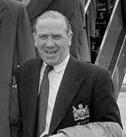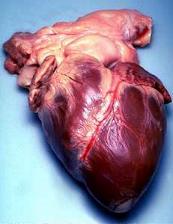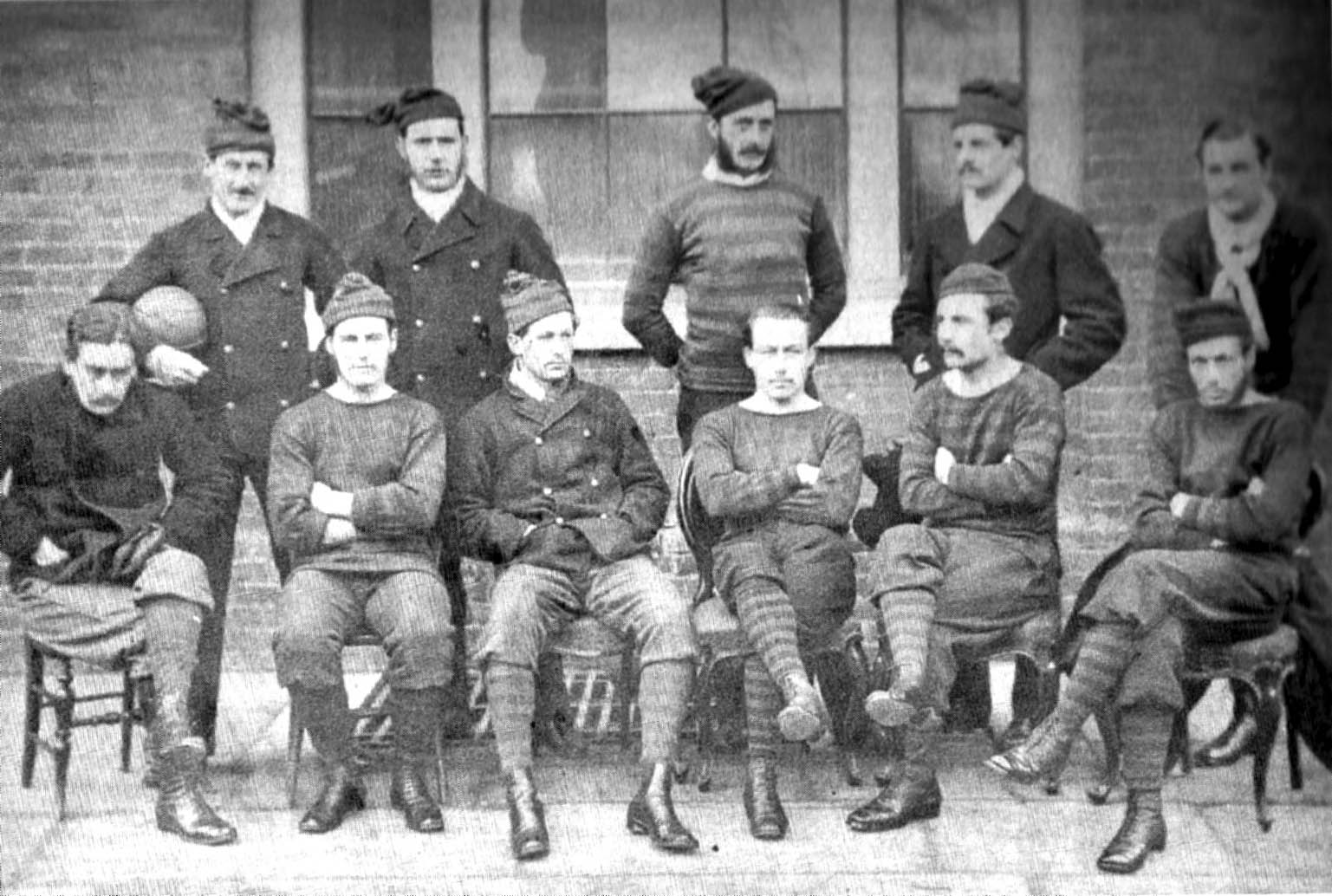|
Scotland National Football Team Results (unofficial Matches)
From 1870 to the present day, the Scotland national football team have played various matches that are not accorded the status of official (FIFA) internationals by the governing body, the Scottish Football Association. These include early matches against England prior to the first-ever official international in 1872, wartime fixtures between 1914–1919 and 1939–1946 when official competitions were suspended, overseas tour matches played by a ''Scotland XI'' of varying strength and status, and others as specified. While some of the tour matches (involving players under consideration for the national team, some having already been capped at full level) could be seen as similar in status to those played by the Scotland B team, they have not been recorded officially as such. List of Matches 1870s–1910s 1870–1872 England v Scotland matches The selection of the Scottish XI were players drawn from living and working in and around London area. Some of the players' Scottish l ... [...More Info...] [...Related Items...] OR: [Wikipedia] [Google] [Baidu] |
Scotland National Football Team
The Scotland national football team gd, Sgioba Ball-coise Nàiseanta na h-Alba sco, Scotland National Fitbaa Team represents Scotland in men's international football and is controlled by the Scottish Football Association. It competes in the three major professional tournaments: the FIFA World Cup, UEFA Nations League and the UEFA European Championship. Scotland, as a country of the United Kingdom, is not a member of the International Olympic Committee, and therefore the national team does not compete in the Olympic Games. The majority of Scotland's home matches are played at the national stadium, Hampden Park. Scotland is the joint oldest national football team in the world, alongside England, whom they played in the world's first international football match in 1872. Scotland has a long-standing rivalry with England, whom they played annually from 1872 until 1989. The teams have met only eight times since then, most recently in a group match during Euro 2020 in June 2021. ... [...More Info...] [...Related Items...] OR: [Wikipedia] [Google] [Baidu] |
The Oval
The Oval, currently known for sponsorship reasons as the Kia Oval, is an international cricket ground in Kennington, located in the borough of Lambeth, in south London. The Oval has been the home ground of Surrey County Cricket Club since it was opened in 1845. It was the first ground in England to host international Test cricket in September 1880. The final Test match of the English season is traditionally played there. In addition to cricket, The Oval has hosted a number of other historically significant sporting events. In 1870, it staged England's first international football match, versus Scotland. It hosted the first FA Cup final in 1872, as well as those between 1874 and 1892. In 1876, it held both the England v. Wales and England v. Scotland rugby international matches and, in 1877, rugby's first varsity match. It also hosted the final of the 2017 ICC Champions Trophy. History The Oval is built on part of the former Kennington Common. Cricket matches were playe ... [...More Info...] [...Related Items...] OR: [Wikipedia] [Google] [Baidu] |
Peter Campbell (Rangers Footballer)
Peter Campbell (late 1850s – January 1883) was a Scottish footballer, who was one of the four founding members of Rangers Football Club. He made 24 Scottish Cup appearances for Rangers and scored 15 goals. Club career Along with fellow founding members Peter McNeil, Moses McNeil and William McBeath, Campbell played in Rangers' first ever match against Callander F.C. at ''Flesher's Haugh'', Glasgow Green in 1872. He continued to play for Rangers until 1879, helping the club to the Scottish Cup finals of 1877 and 1879. He played briefly for English club Blackburn Rovers for the 1879–80 season before retiring from football. On 22 February 2010, Peter Campbell was inducted into the Rangers Hall of Fame. International career He also represented the Scotland national team, playing twice against Wales in 1878 and in 1879, scoring in both. International goals :''Scores and results list Scotland's goal tally first.'' Death He died from drowning after his ship ''Saint Columba ... [...More Info...] [...Related Items...] OR: [Wikipedia] [Google] [Baidu] |
Heart Of Midlothian F
The heart is a muscular organ in most animals. This organ pumps blood through the blood vessels of the circulatory system. The pumped blood carries oxygen and nutrients to the body, while carrying metabolic waste such as carbon dioxide to the lungs. In humans, the heart is approximately the size of a closed fist and is located between the lungs, in the middle compartment of the chest. In humans, other mammals, and birds, the heart is divided into four chambers: upper left and right atria and lower left and right ventricles. Commonly the right atrium and ventricle are referred together as the right heart and their left counterparts as the left heart. Fish, in contrast, have two chambers, an atrium and a ventricle, while most reptiles have three chambers. In a healthy heart blood flows one way through the heart due to heart valves, which prevent backflow. The heart is enclosed in a protective sac, the pericardium, which also contains a small amount of fluid. The wall of ... [...More Info...] [...Related Items...] OR: [Wikipedia] [Google] [Baidu] |
John Smith (sportsman, Born 1855)
John Smith (12 August 1855 – 16 November 1934) was a Scottish footballer of the 1870s and 1880s. He is also notable for playing rugby union and was a member of the first British Lions team that toured Australia and New Zealand in 1888. Football career Club career Smith began playing football at Mauchline F.C. before transferring to Edinburgh University while he studied. After completing his studies in the early 1880s he joined Queen's Park, where he won the Scottish Cup in 1881, 1882 and 1884. He became the first player to score a hat-trick in a Scottish Cup final when he scored all three of Queen's Park's goals in the 1881 final replay against Dumbarton. He was not selected to play in the 1882 final and no match took place in 1884 – Queen's Park were awarded the trophy after Vale of Leven failed to appear. In 1884 Smith was part of the Queen's Park team that reached the FA Cup Final, losing 2–1 to Blackburn Rovers. Whilst at Queen's Park, he also finished second in th ... [...More Info...] [...Related Items...] OR: [Wikipedia] [Google] [Baidu] |
George Ker
George "Geordie" Ker (born in Glasgow) was a Scottish footballer of the 1870s and 1880s. Ker played for ''Queen's Park Juniors'', ''Kerland FC'', and Alexandra Athletic before joining Queen's Park in 1877. Until 1878, Ker had played as a defender but converted to a striker in 1878. He won the Scottish Cup in 1880, 1881 and 1882, scoring in the 1882 replay win over Dumbarton. He was capped five times by the Scotland national team, scoring ten goals including a hat-trick against England in March 1880. In July 1884 he emigrated to North America. His older brother William was also a Scotland international, winning two caps, including the first international against England on 30 November 1872. International goals :''Scores and results list Scotland's goal tally first.'' See also * List of Scotland national football team hat-tricks References External linksProfileat IFFHS The International Federation of Football History & Statistics (IFFHS) is an organisation that c ... [...More Info...] [...Related Items...] OR: [Wikipedia] [Google] [Baidu] |
William Beveridge (footballer)
William Wightman Beveridge (27 November 1858 – 26 January 1941) was a Scottish footballer and track and field athlete. A Scottish athletics sprint champion born in Cumnock, Ayrshire, and educated at Ayr Academy, Beveridge was capped three times by the Scotland national football team between 1879 and 1880 while studying at the University of Glasgow and playing for Glasgow University F.C. He scored one international goal – against Wales in March 1880. He later moved to the University of Edinburgh to study divinity. In 1883 he was ordained as a Church of Scotland minister. He lived and worked in Port Glasgow Port Glasgow ( gd, Port Ghlaschu, ) is the second-largest town in the Inverclyde council area of Scotland. The population according to the 1991 census for Port Glasgow was 19,426 persons and in the 2001 census was 16,617 persons. The most recen ... until his retirement in 1927. Beveridge was an ardent supporter of the Temperance movement in Scotland and published a pam ... [...More Info...] [...Related Items...] OR: [Wikipedia] [Google] [Baidu] |
Kinning Park
Kinning Park is a southern suburb of Glasgow, Scotland. It was formerly a separate police burgh between 1871 and 1905 before being absorbed by the city. In 1897, it had a population of 14,326.Govan Parish School Board, ''The Members' Year Book 1897'', William Hodge & Co, Glasgow, p 121 Political history Originally a separate police burgh founded in 1871, Kinning Park became part of Glasgow in 1905. Thereafter, it was a Town Council ward, situated between those covering Plantation to the west and Kingston to the east. It was the smallest such burgh in Scotland at just . During its 34-year existence, the burgh had its own council, elections, coat of arms, provosts, town hall, council chambers, fire brigade, police force, and police court.Andrew J McMahon et al. (2003), ''A History of Kinning Park and District, Glasgow'', Glasgow Lending Libraries shelfmark 941.443 Govan Burgh to the west survived even longer, from 1864 to 1912, before it too was annexed by the City of Glasgow,T C ... [...More Info...] [...Related Items...] OR: [Wikipedia] [Google] [Baidu] |
Kinning Park (sports Ground)
Kinning Park was a 19th-century sports ground in Kinning Park, Renfrewshire, Scotland, primarily used for cricket and football. It was the home of Clydesdale Cricket Club from 1849, staging a number of important matches against visiting English teams. It was also the original home of the club's football team, Clydesdale F.C. When both teams relocated to Titwood in 1876, Kinning Park was taken over by Rangers F.C., who played there until moving to the first Ibrox Park in 1887. The ground was the venue for the 1881 Scottish Cup Final (and replay) between Queen's Park and Dumbarton. History Cricket Clydesdale Cricket Club were founded in 1848 by the merger of the Thistle and Wallace-grove clubs. They originally played at Kinning Park on a field rented from a Mr Tweedie, a "cow feeder", close to the present site of Shields Road subway station, which had previously been used by Wallace-grove. They played their first home game on 16 September 1848 against Greenock, but after one more ... [...More Info...] [...Related Items...] OR: [Wikipedia] [Google] [Baidu] |
Rangers F
A Ranger is typically someone in a military/paramilitary or law enforcement role specializing in patrolling a given territory, called “ranging”. The term most often refers to: * Park ranger or forest ranger, a person charged with protecting and preserving protected parklands and forests. ** National Park Service ranger, an employee of the National Park Service ** U.S. Forest Service ranger, an employee of the United States Forest Service ** Ranger of Windsor Great Park, a ceremonial office of the United Kingdom * Ranger (character class), a class that appears in many different role-playing games Ranger or Rangers may also refer to: Arts and entertainment Publications * Ranger's Apprentice, a series of novels by John Flanagan * ''Ranger Rick'', a children's nature magazine published by the United States National Wildlife Federation * ''Ranger'' (magazine), a former British comic magazine Fictional entities * Rangers (comics), a Marvel Comics superhero team * Ranger (Middle-e ... [...More Info...] [...Related Items...] OR: [Wikipedia] [Google] [Baidu] |
Charles Clegg (footballer)
Sir John Charles Clegg (15 June 1850 – 26 June 1937), better known as Charles Clegg, was an English footballer and later both chairman and president of the Football Association. He was born in Sheffield and lived there his whole life. He competed in the first international match between England and Scotland in 1872. He was the older brother of William Clegg, whom he played both with and against. He became heavily involved in local football serving as chairman and president of Sheffield Wednesday and one of the founders of Sheffield United. He played a critical role in merging the two competing Sheffield football associations into the Sheffield and Hallamshire Football Association, of which he then became chairman. During his reign in charge of the FA he became known as the ''Napoleon of Football''. Early life and playing career Charles Clegg was the son of Mary and William Johnson Clegg, who went on to have a total of six children. His father was a trainee solicitor at the tim ... [...More Info...] [...Related Items...] OR: [Wikipedia] [Google] [Baidu] |
Henry Renny-Tailyour
Henry Waugh Renny-Tailyour (9 October 1849 – 15 June 1920) was a British amateur all-round sportsman who appeared for Scotland in some of the earliest international football and rugby union matches, remaining to this day the only player to have represented the country in both codes. He also played first class cricket for Kent County Cricket Club and was an accomplished athlete. Biography Renny-Tailyour was born at Mussoorie, North-Western Provinces (now in Uttarakhand) in what was then British India, while his Scottish father was serving in the army there. He grew up on the family estate at Newmanswalls, Montrose, Angus, and was educated at Cheltenham College before entering the British Army, joining the Royal Engineers.Renny-Tailyour, Colonel Henry Waugh Obituaries in 1921, '' |


